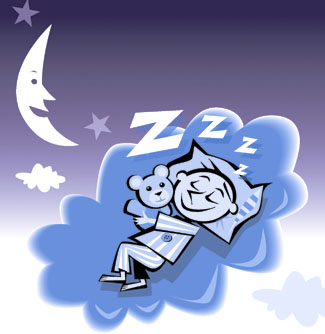Aggressive, Angry and Death Dreams Meanings and Explanation

Dreaming
Dreams are one thing that we all have in common but have little control over. Learning about dreams can be truly fascinating and rewarding. Sometimes dreams can teach us things about ourselves that we are not aware of in our conscious thoughts whilst we are awake. It's thought that in 99% of dreams that occur that there is a deeper meaning as to why you might be dreaming about a particular subject or topic. Dreams vary from person to person, and whilst some people are able to remember their dreams vividly, other are not. Aggressive dreams are one of the worst type of dreams, and many people are subject to them night after night. Even the quietest and calmest of characters can find that they become someone totally different in their dreams. Understanding why we have aggressive dreams is important if we are to overcome them. Continuous aggressive dreaming can lead to low self-esteem, depression and anxiety.
Aggressive Dreams
Aggressive dreams usually take place as a compensation for inner feelings of inferiority and sometimes weaknesses. These dreams stem from when we feel a lack of fortunate and a disadvantage to others that we do not know how to overcome. There are many potential causes for having aggressive dreams and they are commonly linked to what is happening in our every day life.
Many times these dreams occur due to things that could be classed as minor inferiority by others. For example a zit that has arisen in recent days and has lead to a feeling of self-consciousness and embarrassment could cause a feeling of inferiority and therefore result in an aggressive dream state.
Whilst the majority of us do feel hard done by in one way or another it can be considered as normal to have aggressive dreams. It is partly due to our need to grow and develop into something and someone better. Ambition can be considered a contributor when things are not going as planned. Competitive and ambitious people aspire to be the best in everything that they do. They set themselves high targets to achieve and are often the ones that feel the most disappointment when things do not go to plan. By setting personal targets that are too high, a person may be feel that they are under-achieving most of the time, which can cause a great deal of frustration. Paranoia is another major contributor to aggressive dreaming and those who suffer with paranoia are known to have more aggressive dreams than others. Dreaming allows us to let out frustrations and negativity in our own private and personal way.
In summary terms; aggressive dreams are usually caused by frustrations or disappointments in yourself or some aspect of waking life. You may be angry at or blaming yourself for negative outcomes and experiences that you are not consciously acknowledging. These repressed negative emotions may than appear in your dreams as anger.
Angry dreams can usually be linked closely with Jealous dreams. Feeling jealousy in a dream can sometimes be an indication of your own feelings of inadequacy, so it's easily to see how the two are linked.
How To Avoid Aggressive Dreams
Whilst each case is unique and very much individual; there are a number of studies that have be done to determine ways to have a more restful nights sleep.
Room Temperature
It has been proven that uncomfortable room temperature can have a factor on the way in which we sleep and how rested our mind is at night. Therefore it's always a good idea to sleep in a temperature in which you feel comfortable. This may also lead a person to consider the bedding that they use and the warmth of the tog for their duvet. Those who change their duvets to a lighter tog in the summer months, and then a heavier tog in the winter months are proven to have a more restful night of sleep.
Scent and Smell
Studies in Germany have taken place, whereby one group of participants were asked to sleep in room full of rotten eggs, whilst another group was asked to sleep in room full of fresh smelling roses. The group that slept in room of fresh smelling roses reported a peaceful sleep, whilst the other group reported anger in their dreams.
Drugs & Alcohol
Drugs and alcohol can have been proven to impact dreams in a negative way.
Environment and Cleanliness
It is thought that the environment in which you sleep can heavily impact your dreams. If your bedtime routine takes place in a room which is clean, calm and organised then you are likely to follow this pattern with your dreams. If on the other hand your bedroom is chaotic, messy, noisy and disorganised then you may continue this line of thought into your dreams also.
Relaxing Prior to Sleep
One of the best proven techniques is to listen to relaxing music or meditation music before going to sleep. This helps you to relax the mind and get yourself into a relaxed state. Attempting to fall asleep whilst feeling any level of anxiety can be difficult and result in aggressive angry dreaming.
Avoid Anxiety & Stress
At night time you should always try to find a way to avoid anxiety, fear and stress.
Dreaming About Death
Many people find themselves having dreams about death and dieing from time to time. Some find themselves having re-occuring dreams about death and struggle to dream about anything other than it. Whether it be themselves facing death, or perhaps the loss of a loved one or perhaps a pet animal. Sometimes we feel exactly how they expect that they will feel when presented with these happenings, whilst other times it is reported that we feel nothing at all when having a dream that we would in fact be very saddened by in real life.
Most of us are frightened by death, and in general, we are frightened of the unknown. Whilst others are not so frightened by death but are more fascinated and curious with death and what happens aftwerwards. Sometimes these dreams are way of us coming to terms with the enivitable - we know it will happen at some time and we prepare ourselves for it in our dreams. In other cases we might be frightened about the way in which we are going to die, rather than actually dieing itself. Death in dreams can sometimes represent a break up in an close relationship, whereby we feel we have lost someone very important to us, even if they have not actually died. Sometimes these dreams can also be related back to childhood, whereby a child may have been treated badly and left to feel as if nobody care if they are dead or alive. Equally dreams of death are can also be quite common in those that are feeling suicidal and also those who are suffering from illness.
Can Therapy Help?
Counselling and therapy can help to address self-esteem, paranoia, anxiety and worry which are all known to have a negative impact on the dreams that we have.
Sigmund Freud wrote “Dreams are the royal road to the unconscious.” ... The meaning could then be used to provide a “glimpse” into the inner workings of our mind, and most importantly be used as material in psychotherapy.
If you are suffering from aggressive dreams on a regular basis, then it's likely that there are some elements in your conscious life that you are not entirely satisfied with. Talking with a psychiatrist can be useful in understanding ones self on a deeper level and help us to see a new perspective that can change our outlook on a situation.





